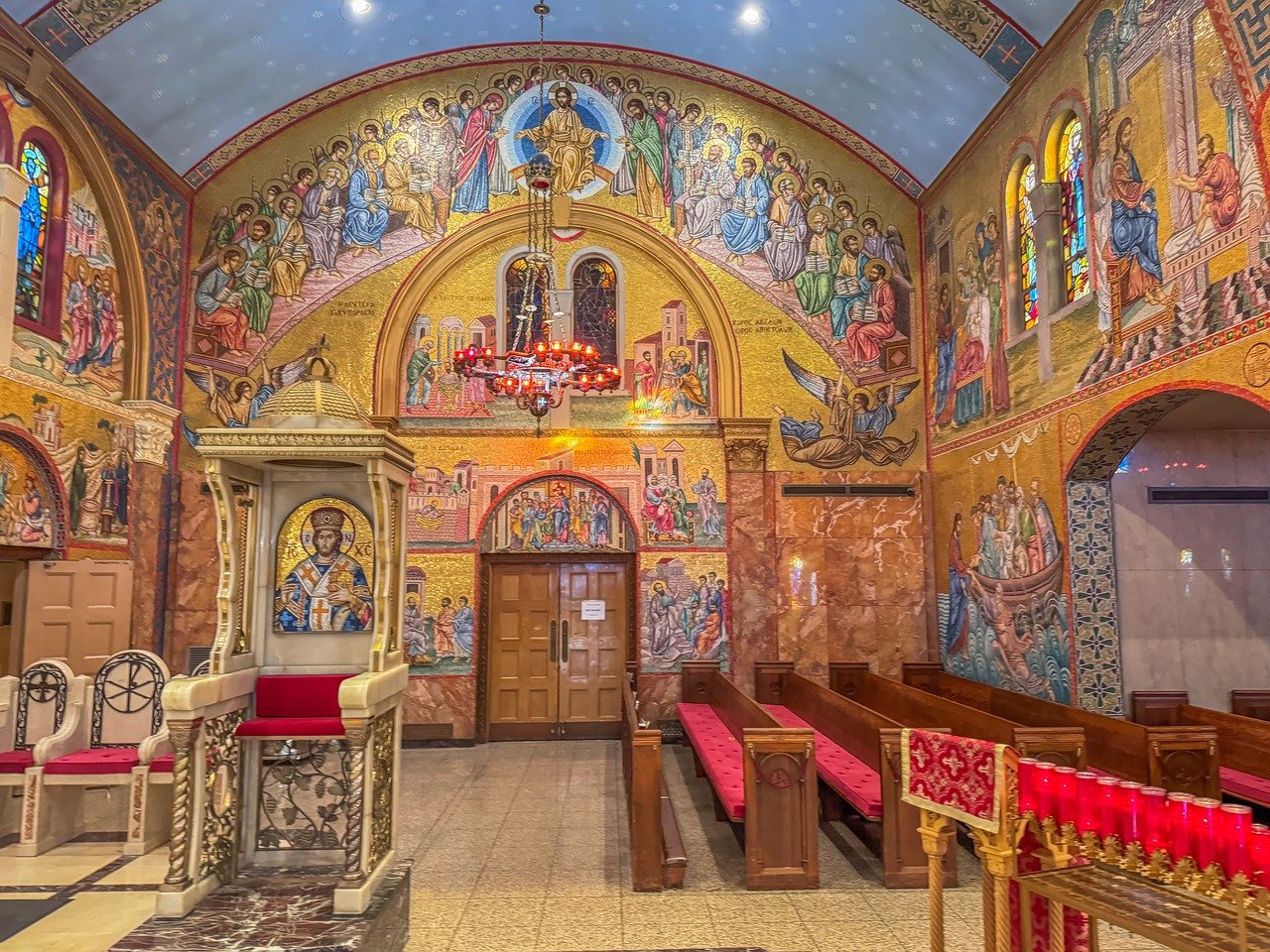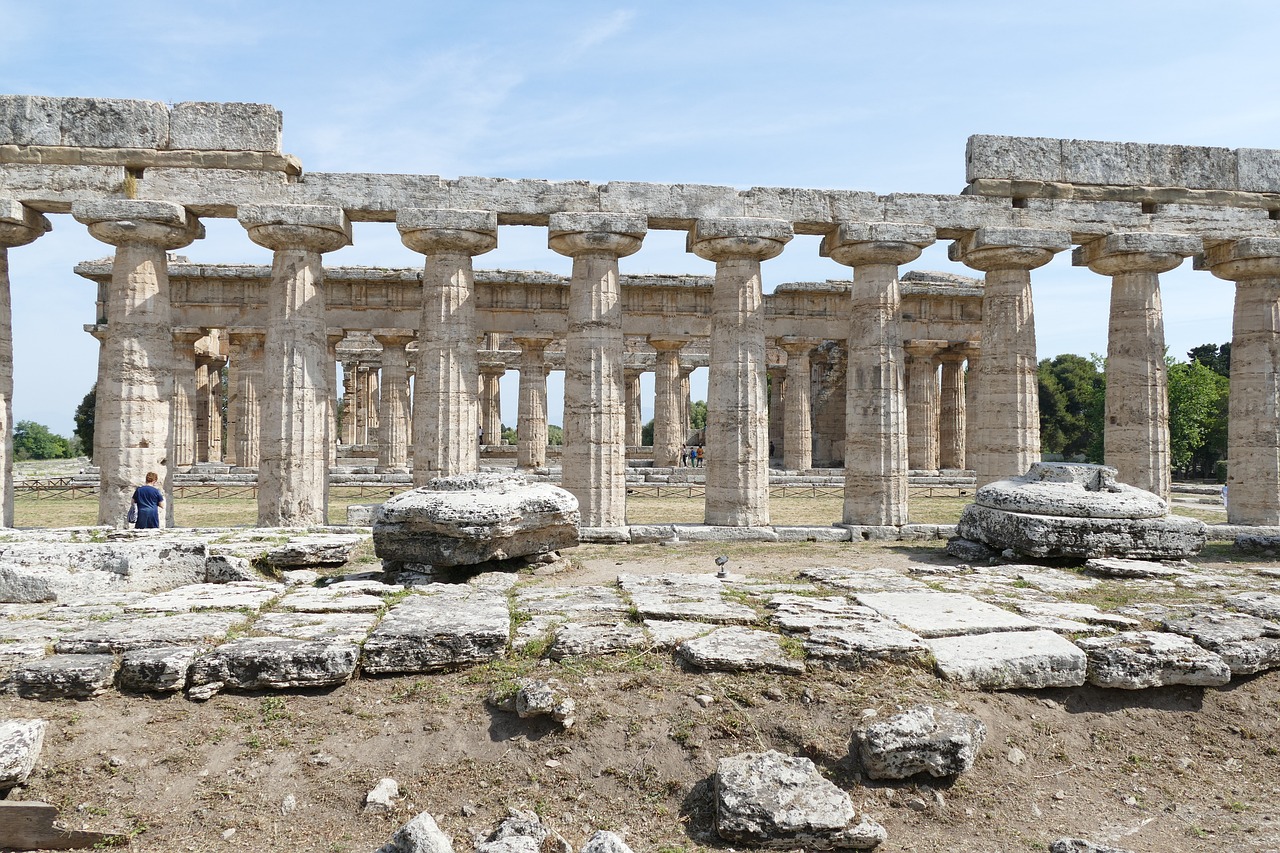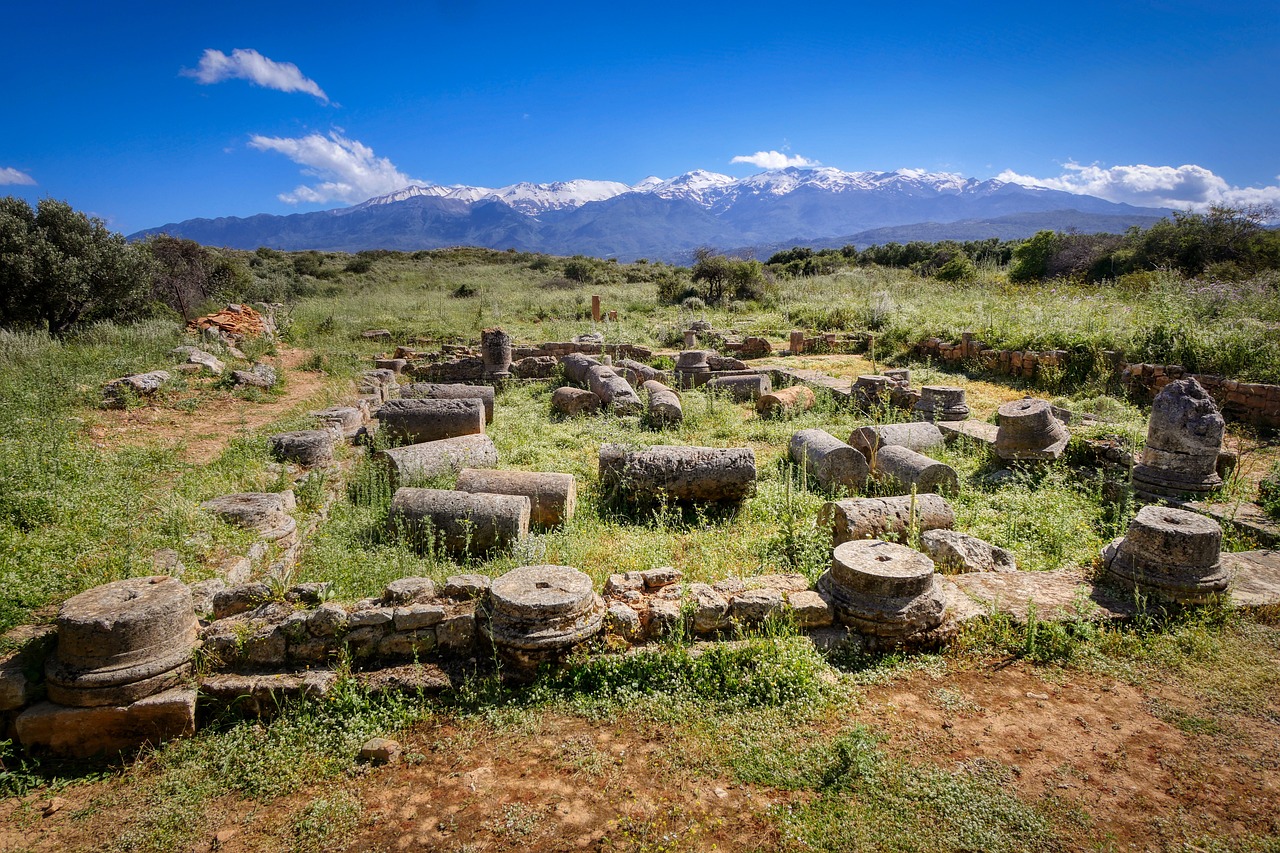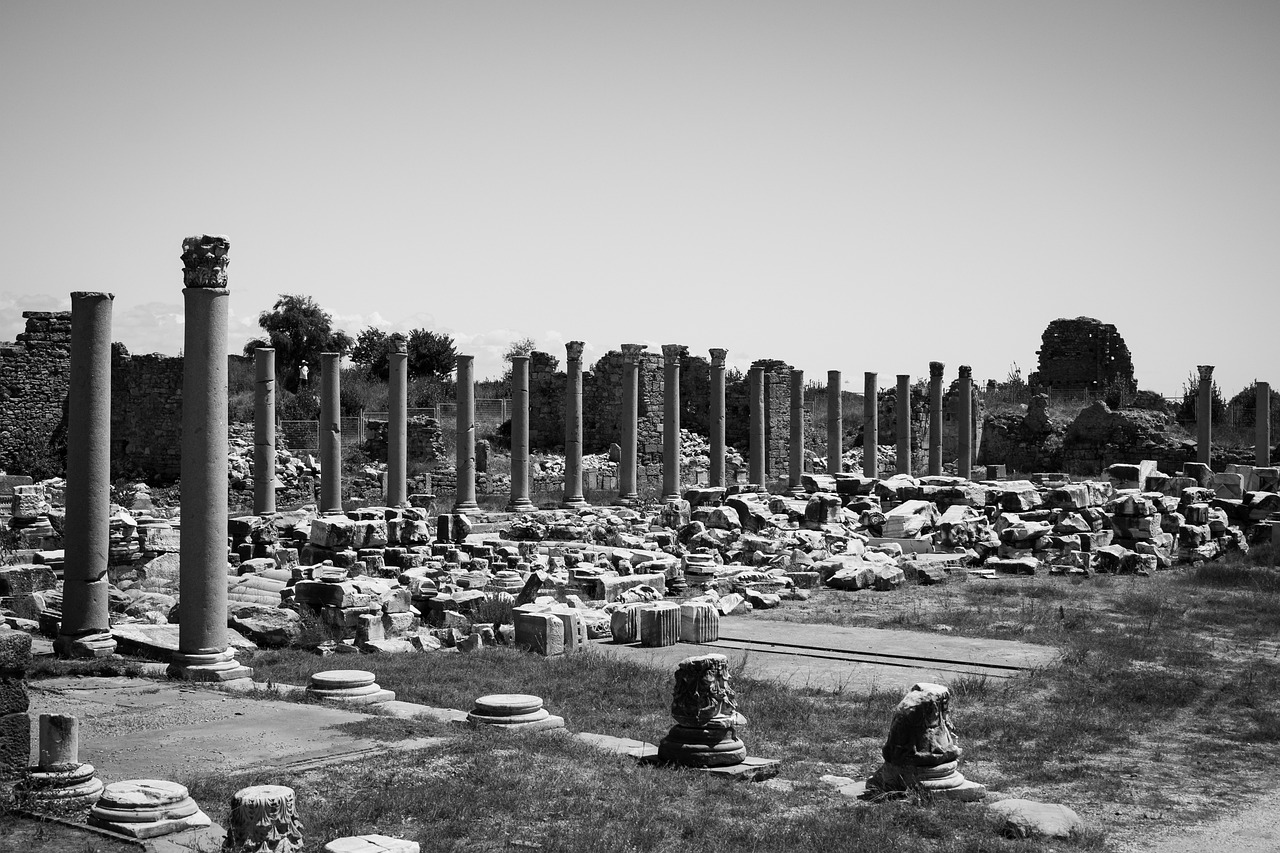The Legacy of the Ancient Greeks in Modern Society
The legacy of the ancient Greeks in modern society is a profound and enduring one that continues to shape our world in numerous ways. From the roots of democracy and governance to the realms of philosophy, art, and science, the contributions of ancient Greek civilization have left an indelible mark on contemporary society. Let's delve into the rich tapestry of Greek influence that permeates our modern world.

Democracy and Governance
Exploring how the contributions of ancient Greek civilization continue to influence and shape various aspects of contemporary society, from politics and philosophy to art and architecture.
The impact of Greek democracy on modern political systems is profound. The principles of citizen participation, rule of law, and separation of powers, which were first established in ancient Greece, form the foundation of many modern democratic societies. The idea that every citizen has a voice in the decision-making process and that leaders are accountable to the people originated in ancient Athens. This concept of governance has stood the test of time, evolving into the democratic systems we see today.

Philosophy and Ethics
Exploring how the contributions of ancient Greek civilization continue to influence and shape various aspects of contemporary society, from politics and philosophy to art and architecture.
The realm of philosophy and ethics stands as a testament to the enduring legacy of ancient Greek thinkers. From the enigmatic Socrates to the profound insights of Plato and the systematic approach of Aristotle, Greek philosophers laid the foundation for ethical theories and philosophical thoughts that continue to resonate in modern society.
The Socratic method, a cornerstone of philosophical inquiry, challenges individuals to question assumptions and seek deeper understanding through dialogue and critical thinking. This approach not only shapes academic discourse but also influences everyday decision-making processes.
Plato's allegory of the cave remains a powerful metaphor for the journey of enlightenment and the pursuit of truth. His exploration of justice, the ideal state, and the nature of reality continues to provoke contemplation on the essence of a just society and the role of individuals within it.
Aristotle's ethical framework, centered on virtues and the golden mean, provides a practical guide for moral decision-making and personal development. His contributions to metaphysics, logic, and rhetoric have left an indelible mark on fields beyond philosophy, influencing disciplines ranging from psychology to political science.
Moreover, the Greek emphasis on rational inquiry and the pursuit of knowledge as a means to achieve eudaimonia (well-being) underscores the enduring relevance of ancient philosophical insights in navigating the complexities of modern ethical dilemmas and societal challenges.

Art and Architecture
The legacy of ancient Greek art and architecture continues to captivate and inspire the modern world with its timeless beauty and innovation. The Greeks were pioneers in creating magnificent sculptures, intricate pottery, and breathtaking architectural marvels that have stood the test of time. Their influence can be seen in various modern designs, from government buildings to public monuments and sculptures.
Greek art, characterized by its emphasis on balance, proportion, and harmony, has served as a foundation for Western artistic traditions. The iconic Doric, Ionic, and Corinthian architectural styles developed by the Greeks have been replicated and adapted in buildings around the globe, symbolizing strength, elegance, and grandeur.
One of the most famous examples of Greek architecture is the Parthenon, a temple dedicated to the goddess Athena, located on the Acropolis in Athens. Its intricate columns, pediments, and friezes showcase the Greeks' mastery of architectural design and craftsmanship, influencing architects and designers for centuries to come.
Furthermore, Greek art and architecture were not just aesthetically pleasing but also served as a reflection of the society's values, beliefs, and achievements. The intricate details in sculptures, the storytelling in pottery, and the grandeur of temples all conveyed important messages about Greek culture, mythology, and history.
Today, the impact of ancient Greek art and architecture can be seen in modern structures that pay homage to the classical styles, blending tradition with contemporary innovation. From the columns of government buildings to the statues in public squares, the legacy of the Greeks lives on, reminding us of the enduring power and beauty of their artistic vision.

Olympic Games and Sports
The Olympic Games, originating in ancient Greece, hold a special place in modern society as a symbol of unity, athleticism, and international cooperation. The legacy of the ancient Greeks in sports is profound, with the modern Olympics carrying forward the spirit of competition and camaraderie that characterized the ancient games.
Ancient Greek athletes competed in events such as running, wrestling, boxing, and chariot racing during the original Olympic Games held in Olympia. These athletic contests were not just about physical prowess but also about honoring the gods and showcasing the best of human abilities. The tradition of the Olympic flame, the lighting of the torch, and the opening ceremony all have roots in ancient Greek rituals and customs.
The revival of the Olympic Games in the modern era can be credited to the efforts of Pierre de Coubertin, who sought to promote peace and understanding through sports. The first modern Olympics took place in Athens in 1896, symbolically returning the games to their birthplace and celebrating the enduring legacy of ancient Greek athleticism.
Today, the Olympic Games have evolved into a global spectacle, bringing together athletes from diverse backgrounds and cultures to compete on the world stage. The values of sportsmanship, fair play, and excellence embodied by the ancient Greeks continue to resonate in the modern Olympics, inspiring generations of athletes and spectators alike.

Literature and Drama
Exploring how the contributions of ancient Greek civilization continue to influence and shape various aspects of contemporary society, from politics and philosophy to art and architecture.
Greek literature and drama hold a significant place in the cultural tapestry of modern society. The epic poems of Homer, such as the Iliad and the Odyssey, continue to captivate readers with their timeless tales of heroism, love, and adventure. These ancient works have inspired countless authors and filmmakers, serving as the foundation for many contemporary stories and narratives.
Moreover, the tragedies of renowned playwrights like Sophocles and Euripides have left an indelible mark on the world of theater. The themes of fate, morality, and the complexities of human nature explored in these plays resonate with audiences to this day. The enduring popularity of Greek drama is evident in the continued performances of classics such as Oedipus Rex and Medea in theaters around the world.
Furthermore, the concept of dramatic structure developed by the ancient Greeks, including elements such as plot, character, and spectacle, continues to influence modern storytelling techniques. From Shakespearean tragedies to contemporary films and television series, the principles of Greek drama are woven into the fabric of narrative arts, shaping the way stories are crafted and presented to audiences.
In addition to their literary and theatrical contributions, the Greeks also introduced the world to the concept of dramatic irony, a storytelling device where the audience possesses knowledge that the characters do not. This technique adds depth and suspense to narratives, creating tension and engaging the audience in a unique way.
Overall, the legacy of Greek literature and drama endures as a testament to the enduring power of storytelling and the human experience. By delving into the rich tapestry of ancient Greek works, we gain insight into universal themes and emotions that continue to resonate with audiences across cultures and generations.

Mathematics and Science
Exploring how the contributions of ancient Greek civilization continue to influence and shape various aspects of contemporary society, from politics and philosophy to art and architecture.
The legacy of ancient Greek mathematicians and scientists resonates through the corridors of time, leaving a profound impact on modern scientific disciplines. Pioneers like Euclid, known as the "Father of Geometry," laid the foundation for mathematical principles still used today. Their advancements in astronomy, such as the work of Ptolemy, revolutionized our understanding of the universe. Moreover, the Hippocratic Oath, attributed to the Greek physician Hippocrates, remains a cornerstone of medical ethics. The intricate knowledge of geometry, astronomy, and medicine from ancient Greece continues to shape the scientific landscape, guiding contemporary researchers in their quest for knowledge and innovation.
Stay tuned for answers to common questions about the enduring legacy of ancient Greek civilization in modern society.

Language and Education
Exploring how the contributions of ancient Greek civilization continue to influence and shape various aspects of contemporary society, from politics and philosophy to art and architecture.
The influence of the Greek language on modern education and vocabulary is profound. Many academic disciplines, scientific terms, and philosophical concepts have roots in ancient Greek. For example, words like "physics," "biology," and "philosophy" all originate from Greek words. This linguistic legacy highlights the enduring impact of Greek culture on education and intellectual discourse.
Moreover, the educational system as we know it today has been shaped by Greek philosophical ideas. The emphasis on critical thinking, debate, and the pursuit of knowledge can be traced back to the teachings of Greek philosophers like Socrates and Plato. Their methods of questioning and reasoning laid the foundation for modern educational practices, encouraging students to think analytically and engage in intellectual discussions.
Furthermore, the Greek language itself continues to be studied and revered for its rich history and cultural significance. Learning ancient Greek is not only a linguistic endeavor but also a journey into the roots of Western civilization. By studying Greek texts, scholars gain insights into the thoughts and beliefs of ancient philosophers, poets, and historians, allowing for a deeper understanding of the foundations of Western thought.
In addition to language, Greek mythology plays a significant role in modern education and literature. The timeless tales of gods and heroes from Greek mythology are often taught in schools as part of literature curricula. These myths not only entertain but also provide valuable insights into human nature, morality, and the complexities of the world. By studying Greek mythology, students gain a broader cultural perspective and an appreciation for the enduring power of storytelling.
In conclusion, the influence of the Greek language and educational principles on modern society is undeniable. From shaping academic disciplines to inspiring intellectual curiosity, the legacy of ancient Greece continues to enrich and inform education in the contemporary world.

Mythology and Religion
Exploring how the contributions of ancient Greek civilization continue to influence and shape various aspects of contemporary society, from politics and philosophy to art and architecture.
Mythology and religion in ancient Greece played a significant role in shaping the culture and beliefs of the society. The rich tapestry of Greek myths, gods, and heroes continues to captivate audiences worldwide, transcending time and geography. These ancient tales, filled with epic battles, tragic romances, and divine interventions, have inspired countless works of art, literature, and popular culture.
The Greek pantheon, with gods and goddesses like Zeus, Athena, and Apollo, symbolized various aspects of human nature and the natural world. Their stories, filled with drama and intrigue, provided explanations for natural phenomena and moral lessons for humanity. The enduring popularity of Greek mythology is evident in the numerous references found in modern literature, movies, and even everyday language.
Furthermore, Greek religious practices, centered around temples, sacrifices, and rituals, reflected the importance of honoring and appeasing the gods. The concept of piety and reverence towards the divine influenced not only religious practices but also ethical standards and social norms within ancient Greek society.
Today, the legacy of Greek mythology and religion can be seen in various forms, from the use of mythological motifs in art and design to the enduring fascination with ancient Greek deities in popular culture. The timeless themes of heroism, fate, and the eternal struggle between gods and mortals continue to resonate with audiences of all ages, highlighting the enduring impact of Greek mythology on modern society.
Frequently Asked Questions
- What is the significance of ancient Greek democracy in modern society?
Ancient Greek democracy laid the foundation for modern political systems by introducing principles such as citizen participation, rule of law, and the separation of powers. These concepts continue to influence governance structures around the world.
- How have Greek philosophers like Socrates, Plato, and Aristotle impacted contemporary ethics and philosophy?
The teachings of Greek philosophers have shaped ethical theories and philosophical thought in modern society. Their ideas on morality, justice, and the nature of reality remain relevant and continue to inspire intellectual discourse.
- What is the legacy of Greek art and architecture on modern designs?
Greek art and architectural styles have served as a source of inspiration for modern designs, influencing everything from government buildings to public monuments and sculptures. The timeless beauty and symmetry of Greek aesthetics continue to captivate artists and architects today.
- How did the Olympic Games originate in ancient Greece and evolve into the global event we know today?
The Olympic Games originated in ancient Greece as a celebration of athletic prowess and cultural unity. Over the centuries, the games have evolved into an international sporting event that promotes peace, unity, and friendly competition among nations.
- What is the impact of Greek literary works on modern literature and theater?
Greek literary works, such as the epics of Homer and the tragedies of Sophocles, have had a profound influence on modern literature and theater. Themes of heroism, fate, and the human condition explored in these works continue to resonate with audiences worldwide.
- How have ancient Greek mathematicians and scientists contributed to modern fields like geometry, astronomy, and medicine?
Ancient Greek scholars made significant contributions to mathematics, astronomy, and medicine, laying the groundwork for many modern scientific principles. Their discoveries and methodologies have had a lasting impact on the development of these fields.
- What is the influence of the Greek language on modern vocabulary and educational systems?
The Greek language has enriched modern vocabulary by providing the roots of many words used in various academic disciplines and everyday language. Additionally, the educational systems worldwide have been shaped by the teachings of ancient Greek scholars and philosophers.
- Why are Greek myths and religious beliefs still popular today and how are they represented in modern culture?
Greek myths and religious beliefs have endured through the ages due to their timeless themes, captivating characters, and universal moral lessons. These stories are frequently depicted in art, literature, and popular culture, showcasing their enduring relevance and appeal.



















